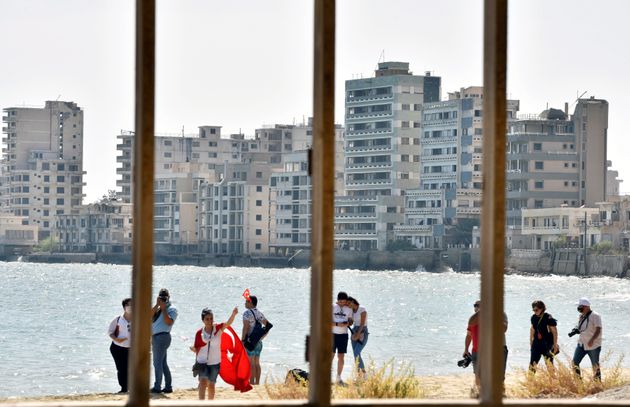The Turkish move to open the Varosia coastal front, which is an integral part of the city of Famagusta, comes at a time when the international community is urging the Greek side, the Republic of Cyprus, to resume intra-Cypriot talks. Turkey, through the installation of floating drilling rigs in violation of the maritime zone of the Cypriot territory, at the same time and with regard to the Greek area, faithfully following its strategy, raises major issues of revision of the Lausanne and Paris and rocky islets of the central and eastern Aegean.
Regarding the above historical dimension, we must remember that during the invasion of Attila in 1974, Famagusta was occupied in the context of accidental developments, as its occupation was not foreseen in the original plan of Ankara. The city was abandoned by the army and the population and then gradually and with the utmost care, the Turkish troops entered a dead city and therefore did not show any form of resistance.
We note that Famagusta was the lung of communication and empowerment of Hellenism with the Near and Middle East. Through the port of Famagusta, Cyprus communicated with Lebanon, Syria, Egypt, North Africa and the Middle East in general. It was a living thing from ancient times, colonized by the heroes of the Trojan War, a Greek city of wealth, history and culture.
In the context of the talks that have been taking place for decades to resolve the Cyprus problem, Famagusta had been repeatedly discussed in the context of a specified bi-zonal federal structure as one or even the only area to be returned to its Greek owners. Hence the infamous saying about "Famagusta" of the Cyprus Problem which refers to the dimension of a constant pressure from the population of the people of Famagusta towards a solution in the well-known context of the bi-zonal bi-communal federation.
However, for those who know the real dimensions of the Cyprus problem, this projection was a fennel, which means that Turkey did not even mean that, that is, the return of the entire city of Famagusta. In fact, Turkey, on the basis of the well-known plans for the settlement of the Cyprus problem, would give the Greek legal inhabitants of Famagusta a district of the new city and would bring under its control through the plan of a federal but Turkish structure of the whole island.
In this regard, it is emphasized that the federal structures in general and in the case of Cyprus in particular work only when there is a daily and lasting agreement between the parties as to their will and the ability of the common state to survive, especially with regard to decision-making. . Otherwise, the political system is rapidly disintegrating and everyone is following an autonomous course. The impasse in this case in the Cypriot example is quite obvious as one of the two parts of the potential federation is supervised and would continue to be controlled by Ankara, thus creating de facto planned impasses if they were not served in any case. the current Turkish interests.
So today, 46 years after the Turkish invasion and occupation of the northern part of Cyprus, the opening of the coastal front of Varosia is by no means an isolated event, but, as is usually the case in Ankara, this is a kind of test of reactions of Hellenism by extension and the international community, the initial phase of implementation of a plan announced many years ago by the Turkish leadership to develop Turkey's strategic role in the southeastern Mediterranean and the Middle East.
According to the above and in line with its broader aspirations, Ankara is trying to implement a planned settlement and the city of Famagusta, following the model of the other occupied Cypriot cities, while creating the conditions for strategic and geopolitical exploitation. naval base capable of geostrategically and geopolitically overseeing the Near and Middle East.
Turkey is thus becoming able, taking advantage of the location of the city of Famagusta, to strengthen the geopolitical and geostrategic role it wants to give to itself in the southeastern Mediterranean and the Middle East.
In view of the current picture of an ongoing over-sectarianism and over-expansion of Ankara on multiple fronts and with its economy on the brink of collapse, but also with its international illegalities, the opening of Varos including including the obvious and obvious international legitimacy, one wonders if Athens is able and has the political will to use in favor of national interests the promotion and promotion of Turkish illegalities at the international level by demanding in this case sanctions that incur costs in Ankara.
In conclusion, it is emphasized that the historical context of Turkey's path teaches us that this country, only if it suffers strong blows in its economic structure and social structure, adapts fundamentally to the rules of international law.
Christodoulos K. Giallouridis, Professor of International Politics
